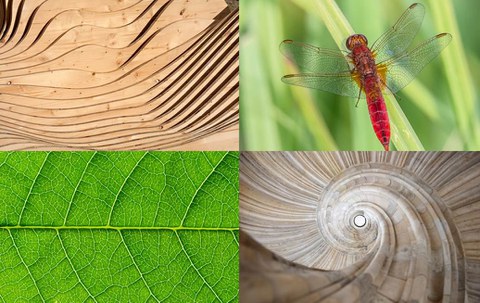“Bionics” FLiK module
The “Bionics” FLiK module will once again be offered from the 2019/20 winter semester. This is particularly aimed at students in the fields of mathematics and natural sciences, construction and the environment, as well as engineering.
Organisational Information
- Management: Prof. Maik Gude (Institute of Lightweight Engineering and Polymer Technology)
- Attendance at the lectures is advised, but is not a requirement for participating the in the research workshop during the summer semester. The research workshop is organised as a block activity with 3 mandatory timetabled sessions. Between the block sessions, consultations are held with the individual project teams.
- Options for credit transfer and recognition can be found in the credit transfer matrix (10.10.2018).
FLiK Module Content
This module revolves around the central question of how natural phenomena and their (functional) properties, as well as their underlying principles, can be analysed in order to then apply them to project developments from engineering, mathematical, biological and design perspectives. Students are familiarised with the possibilities and limitations of modelling the patterns found in nature and applying these to technically usable designs for machines (e.g. lightweight engineering), architecture and materials science (polymer technology, textiles).
Students analyse and model aspects of bionic design using folding structures. They learn about the properties of biological structures and materials using exoskeletons and the muscular systems of various insects as examples. Technological and design potentials are explained using wood/chipboard techniques. An understanding of the function and design principles of structures found in plants is imparted by looking at, for example, column cacti.
In the bionics research workshop during the summer semester 2017, students worked together in structured interdisciplinary teams over the course of three block seminars. The focus of the workshop was to analyse and apply bionic principles to design tasks and project development. As part of the workshop, participants had the opportunity to develop, discuss and implement their own research project with expert support. The module finished with students presenting their results followed by an exhibition of results of student research in the summer semester 2018.
